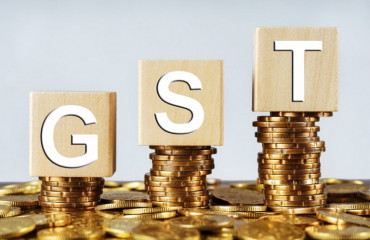
India's GST collections rose 16.4% to ₹2.01 lakh crore for the month of May 2025. The collections hit an all-time high of ₹2.37 lakh crore in April 2025.
New Delhi, Jun 1 (PTI) Gross GST collections rose 16.4 per cent to over ₹2.01 lakh crore in May, as per government data released on Sunday.
This comes after a record high Goods and Services Tax (GST) collection in April, when the revenues touched an all-time high of ₹2.37 lakh crore.
In May, gross revenues from domestic transactions rose 13.7 per cent to about ₹1.50 lakh crore, while GST revenue from imports grew 25.2 per cent to ₹51,266 crore.
In May, the gross Central GST revenues stood at ₹35,434 crore, State GST revenues at ₹43,902 crore and Integrated GST at about ₹1.09 lakh crore. Revenues from Cess was at ₹12,879 crore.
In May, 2024, the mop up was ₹1,72,739 crore.
Meanwhile, total refunds during the month fell 4 per cent to ₹27,210 crore.
Net GST mop-up stood at about ₹1.74 lakh crore, a 20.4 per cent year-on-year growth.
Deloitte India Partner M S Mani said the wide variations in the growth of GST collections across states require a thorough analysis across the sectors that are important in each state.
While large states like Maharashtra, West Bengal, Karnataka and Tamil Nadu have reported collection increases of 17 per cent to 25 per cent, similar large states like Gujarat, Andhra Pradesh and Telangana have shown increases of up to 6 per cent.
Some states like Madhya Pradesh, Haryana, Punjab and Rajasthan have shown median increases of 10 per cent.
"Hence, the average growth across the country does not appear to be uniformly reflected across states possibly due to sectoral or seasonal factors which require a deeper data based analysis," Mani said.
